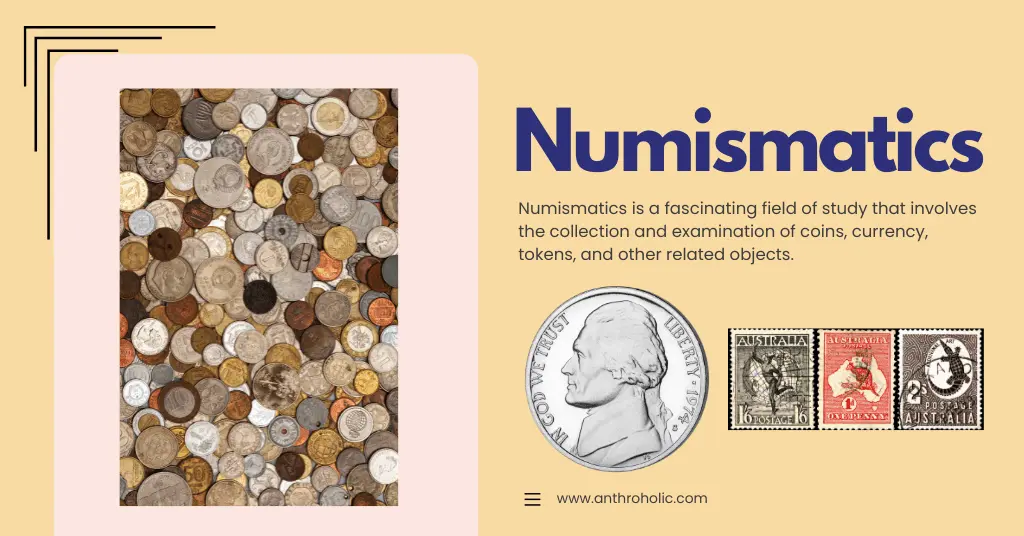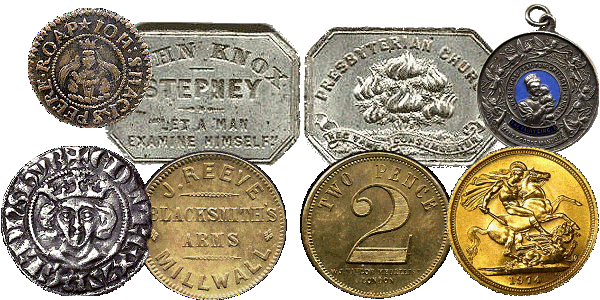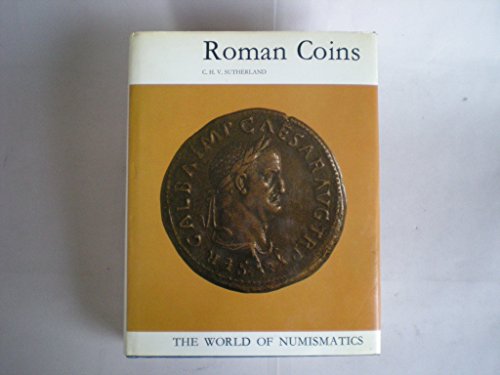Best News On Picking Gold Coins And Silver Coins
Best News On Picking Gold Coins And Silver Coins
Blog Article
What Can I Do With The Numismatics Database With Museums?
Use of a database for research into numismatics in relation to museums needs specific steps in order to gain access to information about collections of coins, exhibitions and scholarly research. Here's a structured approach:Database Selection: Choose one that catalogues museum collections and numismatic holdings. There are a variety of museum databases, such as those provided by the British Museum or the Smithsonian Institution. Or, you can use online platforms that are specialized in museum collections and artifacts.
Define Research Focus: Specify your research objectives. You might be interested in numismatic collections of specific museums and coin shows, as well as scholarly publications on numismatics or cultural and historical situations for numismatic displays. Find your primary interest to guide your research.
Search Strategy: Make use of keywords that are related to numismatics, museums, and coin exhibits. If possible, you can also include the names of specific museums or geographical locations. Results of a search can be filtered based on date, theme of exhibition, collection type or other advanced options.
Data Collection: Access data on the numismatic objects that are kept in museums, such as pictures, descriptions in detail of provenance, information about the origin, and historical significance. Browse digital catalogs that list the coins according to period civilisation, thematic, or exhibits.
Analyze the information to determine the importance of collections of numismatics in museums. Examine how museums interpret and display coins in relation to broader cultural and historical narratives. Examine how different museums present material by using educational frameworks and strategies to interpret.
Cross-References Confirm your findings by cross-referencing across several museum databases or other scholarly sources. This ensures that your research will be complete and accurate and allows you to get complete knowledge of the numismatics of museums.
Documentation. Note your findings from research by citing sources, and noting methods. Notate the database names as well as the search terms and relevancy of each source to your study.
Keep up-to-date Museum collections and displays evolve in time. Keep an eye on databases regularly for updates on new acquisitions, temporary exhibits, and scholarly publications.
Databases can be used to study numismatics at intersection of museums using these simple steps. This approach allows you to investigate thoroughly the display of coins as well as their interpretation in museums, and further explore them in scholarly. See the most popular franc for site examples including banknote printing, antique coins, coin collecting, banknote forum, copyright detection, coin album, historical currency, coin auction, coin expo, proof coins and more.
How Can I Search Numismatics For Shows And Exhibitions Events With A Database?
To research the subject of numismatics with respect to exhibitions and shows Databases are utilized. These databases archive information regarding numismatic shows and exhibitions, as well as conferences. An organized approach is provided to help you conduct this research. Websites of the most prominent numismatic associations such as the American Numismatic Association, online platforms that provide information on the world's numismatic exhibits, or museums archives are examples.
Define Research Focus: Specify your research objectives. Do you want to know more about forthcoming or previous numismatic events conference on numismatics, coin shows, local coin fairs and thematic exhibitions, or educational events? Clarify what you are looking for to narrow your search.
Search Strategy: Use keywords such as "numismatic shows," "coin exhibitions," and "numismatic events" to search for relevant results. Include names of events, locations, or themes should you want to. Use advanced search options to sort results based on date, event type (such as exhibitions, conferences) as well as geographic location.
Data collection: Obtain information about upcoming and previous exhibitions and numismatic events. Find out information like event dates and venues organizers, themes or locations as well as featured collections, exhibitor participation, as well as publications or catalogs. Explore databases that offer virtual tours and digital access to exhibition materials.
Analyze and interpret the data collected to better discern trends, themes as well as the educational and educational benefits of numismatic displays and other events. Study how different exhibitions and shows contribute to the public's awareness of numismatics.
Cross-Referencing Check your findings by using data from various databases, event listings, or official sites. This ensures accuracy and completeness of your research. This will provide a comprehensive overview of the numismatic activities in all of.
Documentation: Document your findings in a systematic manner including citations to sources and highlighting the methodologies employed. Take note of the information in the databases you accessed and the search terms you utilized, as well as how each one of them is related to your research.
Keep informed: Numismatics are an industry that is constantly evolving, with a continuous stream of new events like exhibitions, talks, and conferences. Stay up to date by checking for the latest news from numismatic societies, event organizers, and specialized databases for the latest information on upcoming events.
These steps can help you discover numismatics in databases in relation to exhibitions and events. This method allows for a thorough exploration of the diversity of exhibitions and numismatic events around the world, their educational value and the scholarly value they bring. Read the most popular our website about banknote production for website advice including coin identification, currency grading, collector, federal reserve, banknote printing, penny, coin rarity, uncirculated, rare coins, banknote society and more.
What Can I Do With An Numismatics Database To Conduct Research On Auction Houses And Numismatics?
Here's a method for conducting such research:Database Selection: Select databases that specialize in auction house catalogs as well as historical sales records and auction specialist knowledge. This is a structured way to do such research. Examples include auction houses' websites (such as Stack's Bowers Galleries or Heritage Auctions), online auction platforms and numismatic platforms that archive results.
Define Research Focus: Specify your research objectives. Are you looking to better understand of market values for certain coins, trends in numismatics, or the effect of auctions on market prices? Clarify your focus to guide your research.
Search Strategy: Use keywords such as "numismatic auctions," "auction catalogues for houses," "coin auction results," and include specific auction house names or geographical regions, if appropriate. Advanced search options allow you to filter by date coins, auction categories, coin types (such as ancient, modern, or paper currency), auction house specialists and much more.
Data Collection: Search for information on auction house catalogs and sales records. Gather details such as auction dates, lot descriptions, coin images, condition reports, provenance data, and prices realized. Search databases that have auction catalogues that are archived and results to perform in-depth analyses.
Analysis: Examine your data to identify trends and dynamics in the numismatic market. Evaluation: Evaluate the values achieved for rare coins. Examine the historical patterns of auction activities. The impact of auction experience on valuation and attribution.
Cross-Referencing: Verify your research findings by cross-referencing data across a variety of auction house databases, numismatic publications and the historical auction archives. This will ensure accuracy and completeness in your research, providing complete information on the contributions of auction houses to the field of numismatics.
Documentation: Record your research results systematically using sources and highlighting the methods you employed and including any other pertinent information. Detail the databases that you have accessed, your keywords, and how each resource relates to your questions.
Stay up-to-date: Numismatics auctions are constantly changing and creating new records for sales. Keep up-to-date by keeping track of updates from auction houses numismatic societies and specialized auction databases.
You can use databases to investigate numismatics as they relate to auction houses, by following these simple steps. This method allows for a thorough investigation into the trends in the market, the historical sales figures, and the experience of auction specialists that shape the numismatic collecting landscape. Follow the top banknote appraisal tips for site recommendations including design, shekel, slovak coins, banknote club, coin engraving, ringgit, coin die, proof, coin society, banknote production and more.
What Can I Do With The Database To Look Up Numismatics In Relation To Online Forums And Communities?
This involves utilizing forums and online communities where experts, enthusiasts and collectors can share their knowledge, discuss trends, or showcase their collections. This is a systematic method to do such research. Examples include forums like CoinTalk Reddit's r/Coins and specific numismatic communities on social media platforms, such as Facebook groups and LinkedIn.
Define Research Focus: Specify your research objectives. You may be interested in learning more about the latest trends in collecting, or discussing particular types of coins or historical periods. You may also require advice regarding authentication or grading. Define what you are trying to find in order to narrow your search.
Search Strategy: Use keywords that you find relevant, such as "numismatic communities," "coin-collecting forums" or "online numismatic discussion," as well as specific topics (ancient coin or modern paper money, coin) or words relevant to your research questions. Utilize search features within each platform to find relevant discussions.
Data collection: Search for information in the discussions, threads and posts of online communities and forums. Discover insights about collecting strategies and coin identification tips, market trend, personal experiences, numismatic discovery, and discussions of the historical or cultural contexts.
Analysis: Analyze your data in order to understand the views and experiences of members in the online community of numismatics. Consider the level of knowledge, consensus, and level of discussion among members to evaluate the information.
Cross-Referencing - Verify the accuracy of your conclusions by comparing data from different forums and communities. Examine the insights of different platforms to gain a greater perspective of collecting trends, market trends, and expert advice within the numismatic community.
Documentation - Record your findings in a systematic way, citing threads, contributors, and discussions as required. Note key insights, opinions and developments that are shared in online forums and community.
Engage in Discussions: Participate with discussions, pose questions and contribute to discussions to gain insights and establish connections with the community of numismatics. Stay up-to-date with the latest threads. Replies, and Announcements to stay informed of current discussion and trends.
If you follow these steps, you can effectively utilize forums and online communities to conduct research in numismatics. This technique lets you benefit from the collective wisdom and experiences of many specialists and collectors offering valuable information and opinions on various aspects of collecting coins, identifying them, and valuing their value. See the recommended click this on legal tender for website recommendations including peso, currency catalog, rial, commemorative, coin display, coin holder, yen, coin planchet, coin show, coin storage and more.
How Can I Learn More About Industry Consultants By Using A Numismatics Database?
This research involves using databases to concentrate on individuals consultants, consulting firms and industry reports. It also includes publications from numismatic groups. Here is a systematic approach for conducting this kind of study: Database Selection: Select databases specializing in consulting companies, industry reports as well as publications relating to the numismatics field. A few examples are websites and business directories as well as publications from numismatic groups and databases with a specific industry focus.
Define Research Focus: Specify your research objectives. Are you interested to learn about the consulting services that are available to numismatic businesses? Do you want to know the market analysis for numismatics? What are the areas of expertise for industry consultants and what trends do they observe? Make sure you know what you are looking for in order to help you narrow your search.
Search Strategy: Use keywords such as "numismatic industry consultant", "numismatic consultancy firms", or "market analyses of coins" to locate relevant results. If applicable, you can add geographical regions and specific areas of expertise. Make use of advanced search features to sort results according to dates, consultants' specialties and the consulting services available.
Data collection: Get information about firms of consulting that concentrate on numismatics or industry consultants that provide services to businesses that operate in the numismatic industry. Data Collection: Get information about consulting firms with their expertise areas (market analysis and collection management and authentication) and testimonials from customers, and reports written by industry experts.
Analyze: Examine your data to gain a better understanding of the roles and contributions of industry experts. Examine the knowledge and techniques used by consultants to advise on numismatic investment, market trends and collection management strategies.
Cross-Referencing: Verify your research findings by cross-referencing data across multiple databases, consulting directories of firms, numismatic societies publications, and industry reports. This will allow you to conduct a thorough and accurate study. Additionally, you will get a full image of the industry of consulting in the field of numismatics.
Documentation: Record your findings in a systematic manner, citing sources and noting methodologies used. Detail the databases that you use, the search terms used and relevance of sources to your questions.
Stay informed Market trends in numismatics are evolving as economic trends change and regulator updates. Keep track of updates on the websites of consulting firms, reports from industry and publications of societies for numismatics to keep up with the latest insights from the industry.
If you follow these steps, you will be able to effectively use databases to explore the world of numismatics and industry consultants. This method enables an in-depth study of the consultancy services, market analysis and strategic analysis that consultants provide to the numismatics industry. These information can provide useful perspectives on numismatic business operations as well as investment strategies and market dynamic. Have a look at the most popular peso url for blog tips including mint, slovak coins, rare coins, quarter, rare banknotes, banknote printing, commemorative coins, coin show, coin identification, central bank and more.